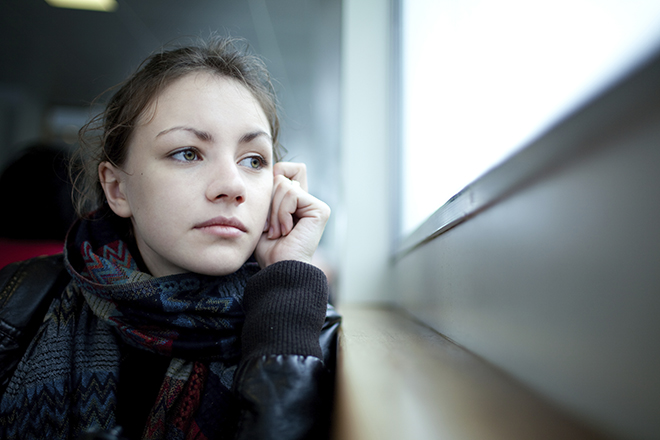Young females feeling unsafe, stressed

Young women don’t feel safe, for half, walking alone at night is scary and a general fear impedes these women from leading their lives in a normal way.
A much higher proportion of young females than young males have reported feeling unsafe or very unsafe in their communities when walking alone after dark (46.6% compared with 18.1% of males). Young females were also more likely to report personal safety as a concern than their young male peers (21.6% compared with 14.3%). Twice the proportion of young females also reported security/safety as a potential barrier to moving out of home in the future compared to young males (28.3% compared with 14.2%).
Worry seems to feature in the lives of many young women, 56.0% were concerned about coping with stress (compared with 26.2% for males) and just under twice the proportion of young females were concerned about school or study problems (41.8% compared with 23.3% for males).
Four in 10 young females were concerned about body image compared with only one in six young males (41.5% compared with 15.4%). A greater proportion of young females than young males highlighted mental health as a personal concern (38.5% compared with 20.4% for males).
The data were from Mission Australia’s Gender Gaps – Findings from the Youth Survey 2018 report on young people aged between 15 and 19 derived from almost 30,000 responses to Mission Australia’s Youth Survey 2018.
CEO James Toomey said, “The obvious lack of trust and concern about safety has a major impact on young female’s public engagement and participation, their access to spaces and services, as well as their ability to move freely in public places. It’s very concerning that young females feel unsafe in public places in Australia, both during the day and after dark, and consequently feel less connected to their communities than their male peers.
“We need to put a spotlight on what young women are telling us. This is not ok, young females should not have to tolerate feeling unsafe as they go about their day to day lives. Young women and men should be able to participate in activities and connect with their friends in their communities with equal confidence.
“We should not accept that young females are feeling such low levels of safety as the norm, and we need to ensure young people can thrive in their communities. We’d like to see increased investment in place-based initiatives which help to strengthen local communities. With more collaboration between individuals, community organisations and governments, we can work together to create safer communities and improve outcomes for young people. Of course, these approaches should be co-designed with young people to ensure they meet the unique needs and preferences of both young females and young males.
“We also need to closely consider the types of messages we are giving our young people in terms of their safety, school stress and mental health. So we can ensure that, regardless of their gender, young people feel safe and supported to fulfil their potential and achieve their future goals.”